From 1 October 2019, additional disability-related health supports will be available to purchase using NDIS funding.
To access these supports:
- A person must meet the NDIS eligibility requirements and be a NDIS participant,
- The need for these supports must directly relate to an NDIS participant’s functional impairment, where the support need is ongoing and is and most appropriately funded or provided by the NDIS.
The NDIS will fund disability-related health supports for participants who need help to manage a range of needs including those associated with continence, respiratory care, nutrition, wound and pressure care, dysphagia, diabetes, podiatry and epilepsy.
Disability-related health supports can be delivered by suitably qualified and competent workers, which may include nurses and or allied health practitioners.
TYPICAL HEALTH RELATED SUPPORTS
The following list of fundable supports is not exhaustive, and supports may be delivered in a range of ways.
- Continence supports including:
- An NDIS-funded suitably qualified and competent worker to undertake insertion, removal or change of indwelling urethral catheter, suprapubic catheter and/or clean intermittent catheter.
- Training of an NDIS-funded suitably qualified and competent worker to provide catheter maintenance and care.
- Provision of daily catheter maintenance and care by an NDIS-funded suitably qualified and competent worker.
- All continence consumables (for example catheter, bags, pads, bottles, straps.)
- Respiratory supports including:
- Development and periodic review of clinical care and daily maintenance of tracheostomy (insertion, removal and change) by an NDIS-funded suitably qualified and competent clinician
- Implementation of daily maintenance of tracheostomy (insertion, removal and change) by an NDIS-funded suitably qualified and competent worker
- Training of an NDIS-funded suitably qualified and competent worker to provide tracheostomy maintenance and care.
- Provision of tracheostomy equipment and consumables.
- Provision of a Constant Positive Airway Pressure machine (CPAP) machine and consumables.
- Provision of a Bilevel Positive Airway Pressure (BIPAP) machine and consumables.
- Provision of a ventilator, air humidifier, portable suction machine and/or cough assist machine and consumables.
- Assistance with the use of all respiratory medical equipment as well as the training of a suitably qualified and competent worker to use the equipment.
- Nutrition supports including:
- Dietetic consultations and the development and periodic review of a nutritional meal plan by an NDIS-funded suitably qualified and competent clinician.
- Implementation of a nutritional meal plan by an NDIS-funded suitably qualified and competent worker.
- Training of an NDIS-funded suitably qualified and competent worker to implement the nutritional meal plan.
- Percutaneous Endoscopic Gastrostomy (PEG) Stoma Changes (to assist feeding.)
- Provision of PEG maintenance and care by a suitably qualified and competent worker.
- Training of an NDIS-funded suitably qualified and competent worker to provide PEG maintenance and care.
- Home Enteral Nutrition (HEN) and (PEG) and equipment and consumables excluding food.
- HEN formula/nutritional supplements (to meet participant’s nutritional needs).
- Dysphagia supports including:
- Development, implementation and periodic review of a meal time management plan by an NDIS-funded suitably qualified and competent clinician.
- Implementation of a meal time management plan by an NDIS-funded suitably qualified and competent worker.
- Development, implementation and periodic review of an oral eating and drinking care plan (OEDCP) by an NDIS-funded suitably qualified and competent clinician.
- Implementation of an oral eating and drinking care plan (OEDCP) by an NDIS-funded suitably qualified and competent worker.
- Training of an NDIS-funded suitably qualified and competent worker to implement the meal time management plan and OEDCP.
- Swallowing therapy associated with dysphagia provided by an NDIS-funded suitably qualified and competent worker.
- Consumables such as thickeners to enable a participant to swallow more easily and reduce their risk of aspiration/choking.
- Wound and pressure care supports including:
- Wound care and pressure care (including pressure injury management) by an NDIS-funded suitably qualified and competent worker.
- Wound care and pressure care consumables (e.g. dressings, gauze, bandages, tape, lymphedema garments and pressure wraps).
- Lymphoedema machines as well as assistance with the use of the equipment and the training of an NDIS-funded suitably qualified and competent worker to use the machine.
- Diabetic management supports including:
- Development and periodic review of a diabetic management plan by an NDIS-funded suitably qualified and competent clinician.
- Implementation of a diabetic management plan and daily maintenance and care by an NDIS-funded suitably qualified and competent worker.
- Training of an NDIS-funded suitably qualified and competent worker to implement a diabetic management plan.
- Podiatry supports including:
- Assessment, development, implementation and periodic review of a podiatry care plan by an NDIS-funded suitably qualified and competent clinician.
- Training of an NDIS-funded suitably qualified and competent worker to implement the podiatry care plan and perform any required daily maintenance and care related to the plan.
- Epilepsy supports including:
- Training of an NDIS-funded suitably qualified and competent worker to implement the participant’s Epilepsy Management Plan (EMP) and/or Emergency Medication Management Plan (EMMP).
- Epilepsy seizure monitoring by an NDIS-funded suitably qualified and competent worker including the application of assistive technology.
A non-exhaustive list of approved supports can be found on the Department of Social Services webpage, through the Disability Reform Council Communiqué dated 28 June 2019, and the associated fact sheet.






